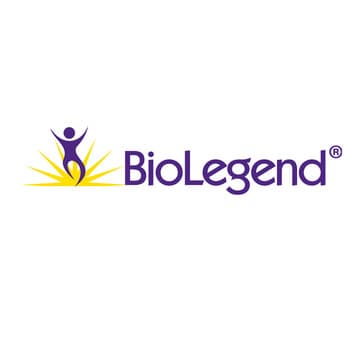
Supplier:
BioLegendCat no: 502922
LEAF(TM) Purified anti-human TNF-alpha
Prices direct from BioLegend
Quick response times
Exclusive Absave savings/discounts
SPECIFICATIONS
Catalog Number
502922
Size
500 microg
Applications
FC, ICC, IHC
Hosts
Mouse
Reactivities
Hum
Clone
MAb11
Antigen
E. coli-expressed, recombinant human TNF-alpha
Gene Id
7124
Isotype
Mouse IgG1, kappa
Clonality
Monoclonal
Dilutions
Each lot of this antibody is quality control tested by ELISA assay. For use as an ELISPOT capture antibody, a concentration range of 0.25-1 microg/ml is recommended. For ELISA capture applications, a concentration range of 1-4 microg/ml is recommended. To obtain a linear standard curve, serial dilutions of TNF-alpha recombinant protein ranging from 500 to 4 pg/ml are recommended for each ELISA plate. It is recommended that the reagent be titrated for optimal performance for each application.
Storage Temp
4 C
Concentration
1 mg/ml
Shipping Temp
Ambient RT
Storage Buffer
The antibody solution should be stored undiluted at 4C. This LEAF(TM) solution contains no preservative; handle under aseptic conditions.
Alternative Names
Tumor necrosis factor-alpha, Cachectin, Necrosin, Macrophage cytotoxic factor (MCF), Differentiation inducing factor (DIF), TNFSF2
Regulatory Status
RUO
SUPPLIER INFO
Email:
info@biolegend.comMore from BioLegend
Applications
FC, ICC
Hosts
Mouse
Reactivities
Hum
Applications
FC, ICC
Hosts
Mouse
Reactivities
Hum
Applications
FC, ICC
Hosts
Mouse
Reactivities
Hum
Applications
FC, ICC
Hosts
Mouse
Reactivities
Hum
Applications
FC, ICC
Hosts
Mouse
Reactivities
Hum
Applications
FC, ICC
Hosts
Mouse
Reactivities
Hum
Applications
FC, ICC
Hosts
Mouse
Reactivities
Hum
Latest promotions
Buy any polyclonal or monoclonal antibody from our extensive range of pre-made antibodies and for a limited time only receive a $50 discount!(T&C apply:...
New brilliant antibodies, and new lower prices!For flow cytometry reagents in general, \"bright is better.\" The violet-excitable BD Horizon™ BV421 and...
10% Discount on 2 Rabbit Polyclonal Antibody Service. With over 20 years experience, SDIX has developed into the premier US custom antibody producer,...
For the past decade scientists have extensively used ATS secondary toxin conjugates to make their own targeted toxins for in vitro use.The ability to combine...
We're so sure that you'll prefer Cayman Assay kits over your present brand that we're willing to give you a free assay kit to prove it!
Did your supplier increase the price of Fetal Bovine Serum? Did they substitute the US Origin with USDA? Well say no more! Innovative Research is still...
Bulk Cytokines with Custom Vialing.20 - 50% off cytokines, growth factors, chemokines and more...For a limited time Cell Sciences is offering substantial...
Are you planning to have a customised antibody made for your research?Since 2000, Everest has been producing a catalog containing thousands of affinity...
Top suppliers
Agrisera AB
11 products
Biotrend
Biosensis
969 products
ABBIOTEC
3011 products
SDIX
1 products
Spring Bioscience
2291 products
Cell Signaling Technology
4976 products
Rockland Immunochemicals, Inc.
7592 products
Boster Immunoleader
1533 products
OriGene Technologies Inc.
5281 products
Maine Biotechnology Services
227 products
BD (Becton, Dickinson and Company)
1 products
ABNOVA CORPORATION
Randox Life Sciences
1502 products























